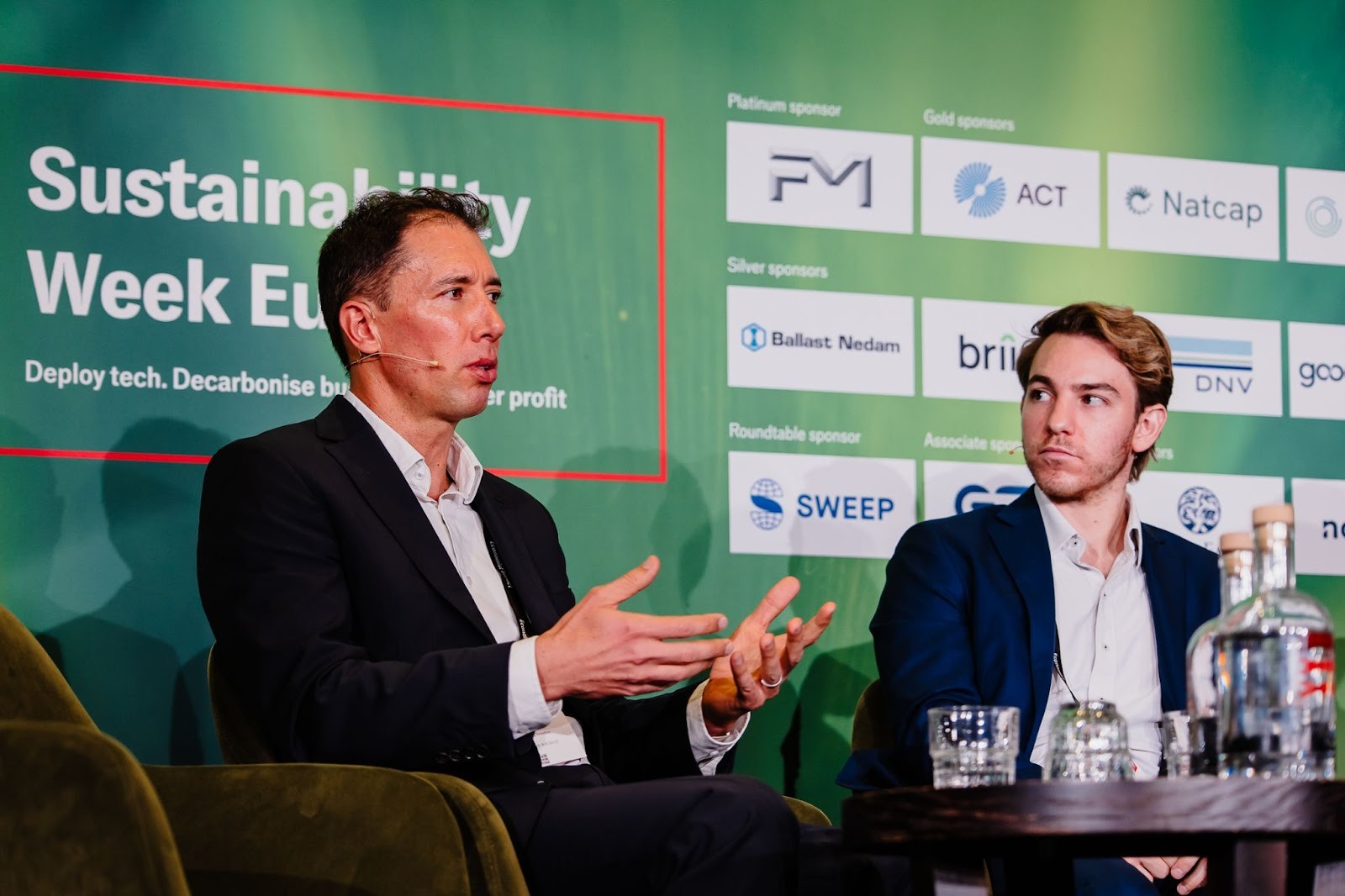Sustainability Week Europe 2025: Decarbonization Insights from Amsterdam

In early October, Green Project joined sustainability leaders in Amsterdam for Sustainability Week Europe 2025, hosted by Economist Impact.
The two-day event brought together decision-makers from sustainability, procurement, and finance to tackle one of the defining challenges of our time: delivering credible decarbonization at scale.
Green Project and ACT Group were proud to contribute to this conversation through two sessions focused on transparency, technology, and the power of procurement to drive measurable climate impact.

Leading the Conversation
On October 7th, ACT Group CEO Colin Crooks joined the plenary panel “Transparency pays — can climate reporting really enhance the bottom line?”
The session explored how greater transparency and standardized reporting can not only strengthen accountability, but also reveal hidden business value.
Later in the day, Sam Stark, Founder & CEO of Green Project, and Mat Langley, Executive Director of Green Wave Advisory, took the stage for “Cracking Scope 3: Digital pathways to decarbonized supply chains.”
Together, they unpacked how digital solutions and AI can help companies move from measuring emissions to meaningfully reducing them.
Watch the full interview: Cracking Scope 3: digital pathways to decarbonised supply chains
From Awareness to Action
For many companies, Scope 3 emissions account for the majority of their carbon footprint. But while awareness is growing, progress remains uneven.
As Mat Langley emphasized during his session, there are still four major problem statements holding organizations back in their supply chain engagements:
- Supplier readiness. “Just because you’re ready to decarbonize your supply chain doesn’t mean your suppliers are,” Mat noted. “At least half still have little or no understanding of what’s required yet, so we must partner and provide tools and support.
- Spend-based reporting. Current accounting models often penalize progress (or lack the ability to measure progress), with emissions appearing to rise as companies spend more, even if performance improves.
- Supplier relationship management. Procurement teams often lack direct sustainability contacts at the supplier level, relying instead on finance, account managers, or procurement contacts. We need to start with what they have and work from there.
- Education. “Education — of clients, internal teams, and suppliers — is the real unlock,” Mat said. “It builds the shared understanding needed to improve requirements across the value and supply chains.”
He also underscored the emerging leadership role of procurement professionals: “Procurement category managers could become the superstars of the future — the ones to reveal efficiency, reduction, and value opportunities within supply chain decarbonization programs.”

The Role of AI in Decarbonization
While collaboration remains essential, technology is rapidly becoming the force multiplier when it comes to supplier engagement and Scope 3 decarbonization.
“AI will help us match emission factors and decarbonizing pathways, model scenarios, optimize existing tools, and build business cases for suppliers and procurement — turning decarbonization into a true growth driver,” Sam said.
In a world where sustainability leaders are increasingly asked to do more with less, AI provides the visibility and automation needed to move faster without sacrificing accuracy or ambition.
By connecting Scope 3 data across suppliers, Green Project’s platform helps enterprises give world-leading tools to their suppliers, identify actionable insights and track progress in real time, closing the loop between measurement and action.
Building a Shared Future
A common thread ran through Sustainability Week Europe: partnership.
Credible climate action doesn’t happen in isolation. It requires education, alignment, and the right digital infrastructure to empower suppliers and procurement teams alike.
Achieving net zero is a shared journey, and for Green Project and ACT Group, these themes lie at the heart of our work: helping companies collaborate across their value chains, measure with precision, and act with confidence.
Let’s build the partnerships, data systems, and shared understanding needed to turn Scope 3 ambition into measurable decarbonization.

